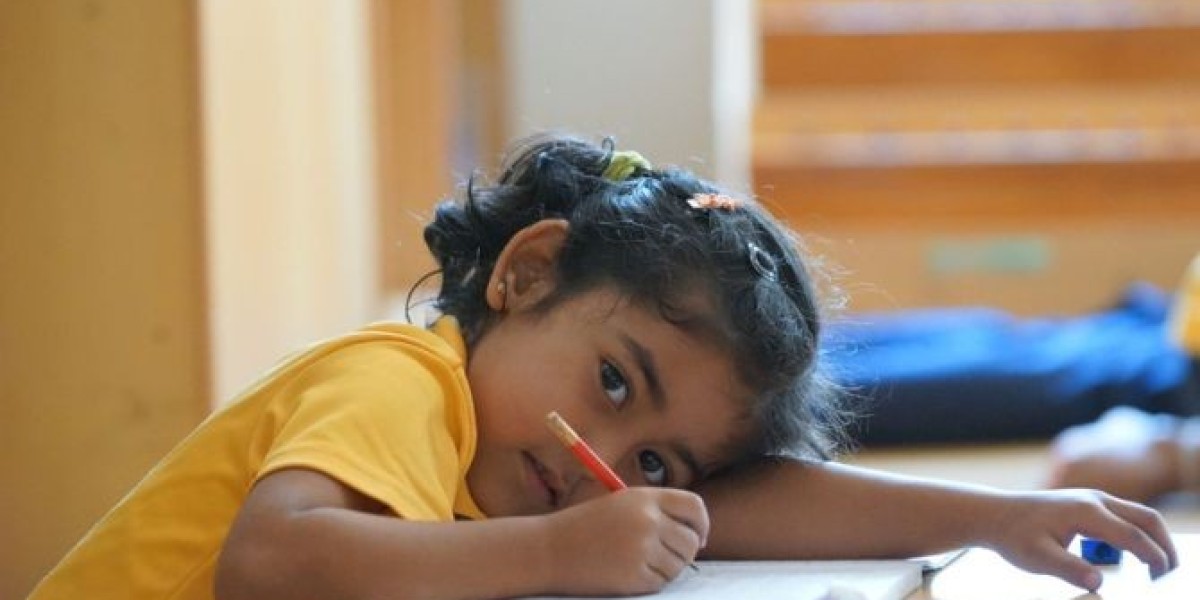An essential part of a child's general development, including the development of thinking skills like memory and attention, takes place in preschool education. The brain experiences enormous growth throughout these years and is very open to learning.
Preschool education can lay a solid foundation for future academic success by fostering an environment that encourages memory and attention skills. Undoubtedly, children need more than just playtime; proper early education plays a vital part in developing young minds. This article is based on how preschool programs contribute to better memory and concentration among kids. It also looks into different strategies that caring parents can adopt to support their children's development.
The developing brain: The preschool years are essential for brain development. During this time, neuronal connections are formed at an astonishing rate, and the brain's learning potential is at its peak. By providing appropriate stimulation and experiences, preschool education can optimize memory and attention skills development.
Memory Skills: Preschool education supports the development of memory skills by introducing children to structured routines and engaging activities. Through repetition and encouragement, children learn to remember information, events, and instructions. Preschool teachers often employ techniques such as songs, rhymes, and games to help children retain information. It is crucial to have a good memory to complete tasks like problem-solving and following directions. Engaging in particular activities can help enhance this type of memory, making it easier for children to develop it. Parents can aid memory development by establishing a steady routine, offering repetitive opportunities, and exposing their kids to upskill-enhancing activities like storytelling, basic memory games, and simple exercises. Encouraging discussions about past experiences and activities involving children in remembering and discussing events can also enhance memory skills.
Attention Skills: Preschool education cultivates attention skills by creating an environment that encourages focus and concentration. Structured activities, group tasks, and interactive learning experiences help children develop sustained attention, and the ability to concentrate on a specific task for an extended period. Parents can support the development of attention skills by minimising distractions during playtime, creating a dedicated study area, and establishing clear rules and expectations.
Encouraging activities that require continuous focus, like puzzles, building blocks, and arts and crafts, can also help to improve attention skills.
Preschool education frequently integrates learning, in which children engage with information using several senses such as sight, sound, touch, and movement. This method improves memory and attention skills by connecting multiple parts of the brain, making learning more meaningful and memorable.
Parents can supplement this approach by providing hands-on learning experiences at home, involving children in sensory activities such as cooking, gardening, and exploring nature. Utilizing educational apps, interactive toys, and age-appropriate puzzles can also facilitate multisensory learning and further enhance memory and attention skills.
Play-Based Learning: Preschool education significantly emphasises play-based learning, which is fundamental to memory and attention development. Play activities allow youngsters to use their imaginations, explore, solve problems, and practise discipline, all of which contribute to better memory and attention abilities.
Parents can help children learn through fun games by providing multipurpose toys, encouraging imaginative play, and participating in interactive games and activities.
Providing a balance between structured learning and unstructured playtime allows children to explore their interests, exercise their creativity, and further develop their cognitive abilities. Preschool education serves as a vital catalyst in enhancing memory and attention skills in young children. By providing a nurturing and stimulating environment that promotes structured routines, memory-enhancing activities, and play-based learning, parents and educators can help children build a strong foundation for future academic success. Additionally, parental involvement through various activities at home further reinforces these skills and supports holistic development. We can foster a love for learning and equip our children with the cognitive tools they need to thrive in their educational journey and beyond.
Cherubs Montessori is one such preschool in Bangalore that offers a stimulating environment that focuses on holistic development, so parents in Bangalore may now support their children's learning and memory skills through engaging games and activities.
Children at Cherubs Montessori participate in regular routines and memory-boosting activities to support cognitive development. Children learn to recall knowledge and stay focused by using repetition, association, and psychological approaches.
The preschool also emphasises play-based learning, allowing children to engage in interactive games that improve their attention abilities. Cherubs Montessori promotes cognitive development in children by making learning joyful and laying a solid basis for academic achievement.



